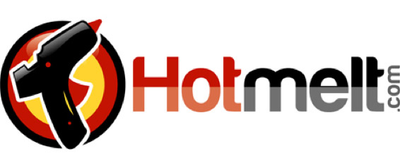Hot Melt Drywall Glue
Adhesives for Drywall and Plasterboard Assembly
Hanging drywall is a tough job, selecting an adhesive can be even tougher. We put together a straightforward list of the best adhesives for drywall and plasterboard applications. Using glue is a simple and inexpensive tool to use during repair and installation - this makes it a favorite of many industry experts.
Top Recommendations

Best Overall for Drywall and Plasterboard: Infinity Bond DW8000 Hot Melt for Drywall V-Groove Forming
DW8000 is a high performance and economical solution for assembling v-grooved profiles in drywall and plasterboard. Use DW8000 for drywall v-groove forming applications.

Best Shock Resistant Drywall Hot Melt: Groovtec 561 Long Open Time and Shock Resistant Drywall Hot Melt
Groovtec 561 is a longer open time and tougher, shock resistant hot melt solution for assembling v-grooved profiles in drywall and plasterboard. Use Groovtec 561 for drywall applications that will be prone to temperature changes and high shocks during the shipping process.

Best Long Open Time Drywall Hot Melt: Groovtec 550 Long Open Time Drywall Hot Melt for Grabber PanelMax Systems
Groovtec 550 is hot melt solution for assembling v-grooved profiles in drywall and plasterboard that require longer open time. Groovtec 550 allows for high output in demanding drywall applications.
Ask a question about Hot Melt Drywall Glue
Questions about these products? Not sure what's best for your application? Our hot melt experts can help. Submit your questions and we'll get you answers right away. We're here to help.
Common Questions About Hot Melt Drywall Glue
Hot melt glue is a simple and inexpensive step to utilize when working with drywall. By applying glue for drywall to the studs or joists before installing the sheet, you cut down the need for screws in the field of the board. You'll also have fewer nail pops and loose boards.
Different hot melt glues have different setting times, and this will determine its proper uses. Some hot melt glues dry almost instantly and are best for situations where repositioning of the parts is unlikely and speed is important, such as in many craft projects. On the other hand, slower hardening glues are better when it may take a little time to position the parts, such as when installing cleats for drywall repairs.


